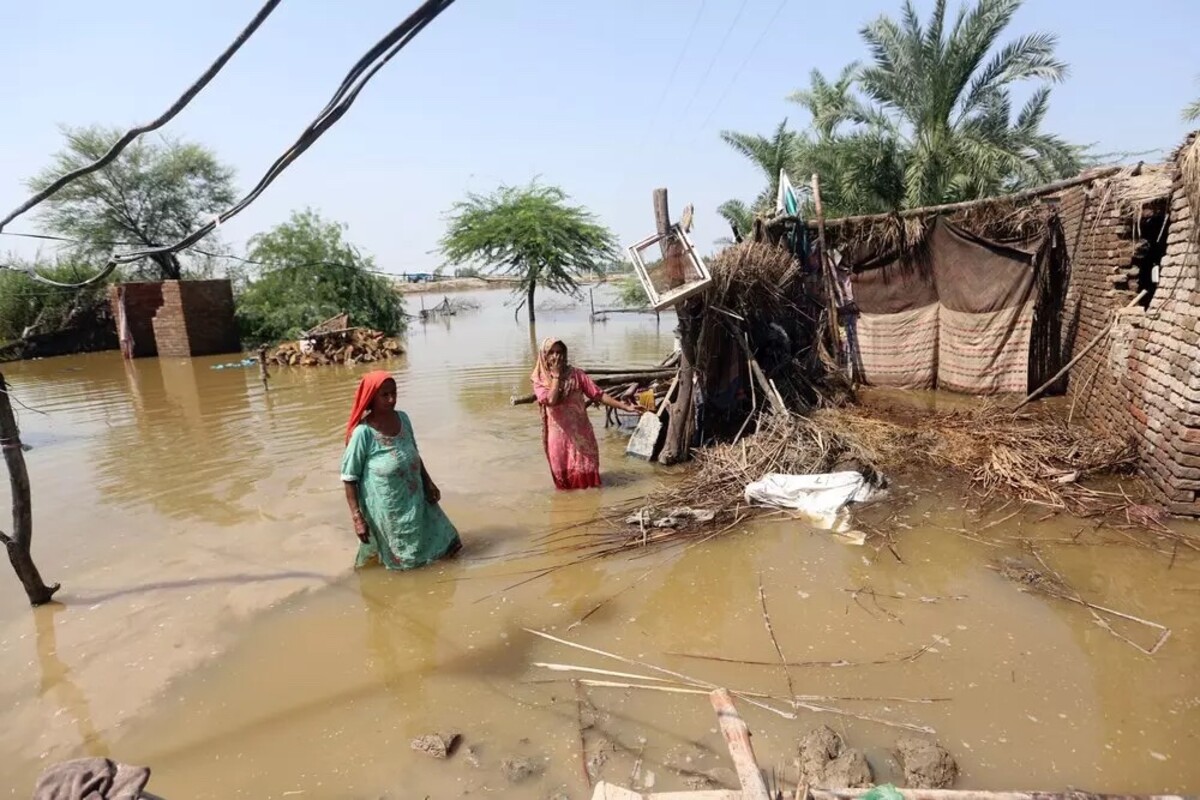Are we facing climate armageddon? COP27 is sponsored by Coca-Cola. We look back the specifics of the first week of the Egyptian conference.
At the COP27 climate conference in the popular Egyptian resort of Sharm el-Sheikh, more than 40,000 participants, including more than a hundred heads of state, have been looking for solutions to the global climate crisis for a week.
When this climate conference was approaching, it was felt that it would not be as closely watched as its predecessors.
Unlike the major conferences in Kyoto and Paris, delegates were not expected to adopt a major document. The countries on the shores of the Red Sea were only supposed to be informed about the progress and agree on the specific implementation of the already agreed goals.
1. Finding common ground in a divided world
World leaders came to Egypt to assure each other that the world is on track to meet the most important milestone agreed in Paris in 2015, to keep global warming below 2, ideally 1.5 degrees Celsius.
Interesting progress was also achieved by the delegations last year in Glasgow, where they agreed to end the energy use of coal, the end of deforestation and the reduction of emissions by 45 percent by 2030.
It sounded nice, but before COP27 the UN looked at what countries were actually doing and found that even if all countries met their commitments, the temperature would rise too much by the end of the century, about 2.5 degrees Celsius. The world needs better commitments.
However, the war in Ukraine, the tension in Taiwan and the resulting cracking of geopolitical friction surfaces between the world powers are far from evoking an ideal cohesive atmosphere. It is the latter that is essential in the debates about future cooperation and the necessary investments to slow down the effects of the climate crisis.
Despite the pretty words and endless touching speeches, humanity produces more emissions than ever before. In addition, many countries such as China and Germany have decided to "temporarily" return to coal as a result of the energy crisis caused by the war in Ukraine.
2. Controversial host
Sharm el-Sheikh, a resort with heavy traffic, a polluting port and hundreds of hotels, is not exactly the most ecological backdrop for a climate conference. Egypt is at the forefront of environmental problems.
In 70 years, its population grew from 30 to 100 million inhabitants. Up to 90 percent of them live on 5 percent of the land around Cairo, and their population and energy pressure is so great that the agriculturally irreplaceable Nile River is danger of drying up.

The political regime in Egypt is not known for consistently respecting human rights, and its president was even described by Donald Trump as "his favorite dictator".
Former defense minister Abd al-Fattah al-Sisi came to power after a wave of protests in 2013 known as the Arab Spring. His main opponent, a programmer with British blood, Alaa Abd El-Fattah ended up in prison after a fabricated trial.
3. Coca-Cola showed up, Greta Thunberg did not
Greta Thunberg, who called last year's summit in Glasgow a fiasco, decided not to travel to Egypt. She used the argument about oppression of civil society and the number of political prisoners.
According to her, the COP summits are "above all opportunities for leaders and the powerful to gain attention and apply various forms of greenwashing". Thunberg considers the only benefit of the summits to be media attention, which "can and should mobilize billions of activists calling for drastic changes."

Perhaps the most controversial case of greenwashing at the summit is the choice of Coca-Cola as a partner. The American corporation is considered by environmental organizations to be the biggest plastic polluter in the world. It produces more than 100 billion plastic bottles each year, made mainly from oil.
Controversial sponsorships are not new at summits, a year ago a partnership with GSK, Unilever or Microsoft caused outrage. COP24 in Poland was even directly sponsored by national coal and gas companies.
The world's elite have arrived at #COP27 on hundreds of private jets to lecture you about climate change. Sponsored by Coca-Cola. pic.twitter.com/fR4rqxL1nP
— DiEM25 (@DiEM_25) November 7, 2022
The credibility of the environmental intentions is undermined by the fact that, according to the Egyptian authorities, up to 400 private planes arrived at the summit.
The European environmental organization Transport and Environment estimates that a private jet can emit two tons of carbon dioxide per hour, which is 5 to 14 times more pollution per passenger than a commercial flight.
4. More lobbyists than ever before
Not only state representatives came to COP27. According to The Guardian, oil and gas companies also sent a record number of representatives. 636 of them will participate in the conference. This is 25 percent more than last year in Glasgow. No other industry is more heavily represented than the fossil fuel powerhouse of the United Arab Emirates, with 1,070 people.
Activists associated with the group "Kick Big Polluters out" say this disparity completely overshadows the delegations of African countries and indigenous communities most at risk from climate change.

Marie Cosquer of Action Against Hunger believes that the presence of private lobbies at the summits is unwarranted. "We, the civil society, are fighting hard to participate in these conferences, to arrive and to be accredited. Big MNCs don't have these problems and they don't play in the same league. It greatly reduces the credibility of the conference."
5. The conflict of the rich and the poor
This year was also marked by the catastrophic effects of the climate crisis. In the summer alone, massive floods in Pakistan drove 8 million people from their homes and the economic damage of the element exceeded the goal of 30 billion euros. This is an excellent example of ecological injustice, when the climate crisis affects countries that contribute the least to greenhouse gas emissions

Also because of this disparity, a fundamental agreement was reached in Paris, according to which rich countries were to spend 100 billion euros annually from 2020 on climate protection and the elimination of climate damage in the poorest countries.
They have not yet met the goal, as they invested "only" 83 billion dollars for 2020 to cope with the effects of the ecological crisis. In addition, climatologist Pecho describes the financial flows from the global North to the South as extremely non-transparent, expressing doubts, that they always end up in the right hands.
 Climate Crisis Could Affect Growth. People May Even Shrink, Says A Fossil Expert
7. 6. 2022 21:00
Climate Crisis Could Affect Growth. People May Even Shrink, Says A Fossil Expert
7. 6. 2022 21:00
During the first week of the Egyptian negotiations, the delegates tried to specify the plan to help poor countries, also because of doubts about the misdirection of the aid.
They adopted the "Sharm Ash-Sheikh Adaptation Agenda", containing 30 goals to be achieved by the end of this decade and should improve the lives of four billion people. The agenda is more ambitious than the Paris plan and is expected to mobilise up to $300 billion a year from public and private investors.
At COP27, "losses and damages" are being specifically discussed for the first time. At last year's COP26 conference in Glasgow, high-income countries blocked a proposal to create a similar financial program.
Although the UN calls for half of all funds to be used to help vulnerable countries, most of the outlined goals aim to reduce greenhouse gas emissions. According to the document, world agriculture should adapt to more sustainable methods and reduce greenhouse emissions by 21 percent.
6. The heads of Russia, India and China are missing
For understandable reasons, Russian President Vladimir Putin, whose war in Ukraine is financed by profits from the sale of fossil fuels, did not come to the congress center on the coast of the Red Sea. However, two other key world leaders did not attend either. Chinese President Xi Jinping and Indian Prime Minister Narendra Modi stayed at home.
Climate economist Otmar Edenhofer reminded the Frankfurter Allgemeine Zeitungrankutrer that "the climate is important for China, but its economic growth is even more important."
COP27 was, however, attended by US President Joe Biden, who called the war in Ukraine an opportunity to speed up the transition away from dependence on fossil fuels. During the short visit, he also met with the Egyptian president and tried to reassure the world that the US will manage to reduce its emissions by 50 percent by 2030, compared to 2005 levels.
After domestic criticism, the new British Prime Minister Rishi Sunak made an impressive turn, who at first pulled out of the participation saying that he had to solve more acute problems in Britain.
He reversed his decision after Labour's Keir Starmer said he had failed as leader and UK Greenpeace suggested he was not taking climate change "seriously enough". In Egypt, he negotiated primarily with French President Emmanuel Macron on the fight against illegal migration between their countries.








